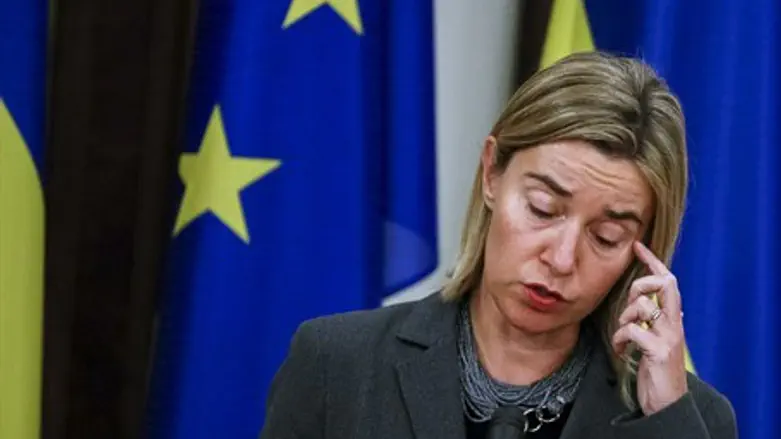
In marked contrast to its decision to label Jewish "settlement" goods, the European Union (EU) on Monday announced it will fight a decision by its own courts to stop trade in the Moroccan occupied Western Sahara.
To make sense of the state of affairs, Arutz Sheva spoke with Professor Eugene Kontorovich, a renowned legal expert at the Northwestern Pritzker School of Law and head of the International Law Department at the Kohelet Policy Forum.
The law professor explained how the EU has tried to justify its double-standards regarding Western Sahara, a region Morocco has occupied since 1976 when it was handed to its troops by Spain as it ended its colony there. The area is under a territorial dispute, with the Sahrawi Arab Democratic Republic (SADR) that holds a government-in-exile in Algeria claiming rights to rule.
"The EU's defense of their discriminatory labeling rules - which for example they do not require for Moroccan-occupied Western Sahara - has been based on a remarkable claim that Western Sahara is not actually occupied, but rather a 'special case,'" he said.
That status quo was ruptured last Thursday, when the European Court of Justice (ECJ) decided to strike down a 2012 trade agreement between the EU and Morocco in Western Sahara, ruling in favor of the Algerian-backed Polisario Front that fights for independence in the region.
"The ECJ rejected this view, saying Western Sahara is occupied," emphasized Kontorovich.
Applying the new ruling to the EU decision to label Jewish goods in Judea, Samaria, eastern Jerusalem and the Golan Heights, the professor said the case has exposed the fallacy of the EU's claims once and for all.
"Given that the EU allows products there (in Western Sahara - ed.) to be labeled 'made in Morocco' (and this case does not change that), it totally undermines their labeling arguments about Israel," he said. "At this point, it would be folly for Israel not to challenge the labeling in legal fora like the WTO (World Treaty Organization). The Europeans' arguments have been stripped from them by their own court."
EU approves business with an 'occupier'
Turning his attention to the details of the ruling by the second highest EU court last Thursday, Kontorovich explained that "the Court rules that there is absolutely nothing wrong in itself about having treaties extend to occupied territory, or doing business with an occupier in occupied territory."
"This goes against all the EU's arguments in relation to Israel. In particular, the EU used the 'principle of non-recognition' to justify everything from its 'funding guidelines' for Horizon 2020 to not having diplomats and visiting officials across the 'Green Line,'" he said, referring to the 1949 Armistice line.
"The ECJ has rejected this broad view of recognition: even making a treaty with Morocco about occupied territory does not constitute recognition."
Kontorovich then detailed exactly how Israel should go about taking advantage of the exposure of the EU's double-standard, as it makes the case for not being targeted in a discriminatory fashion.
In light of the court ruling, "the Israeli Government should now revisit and resist the EU funding guidelines."
"The MFA (Ministry of Foreign Affairs) should be aggressive about having foreign officials come to government offices across the Green Line, as the ECJ has made clear such action is not recognition, and thus their protests to such visits are pretextual and discriminatory."